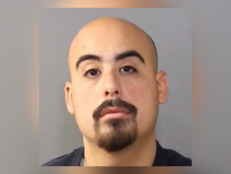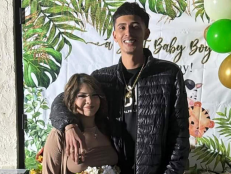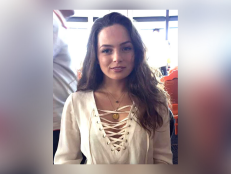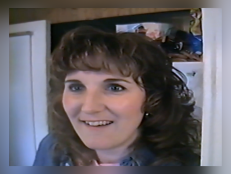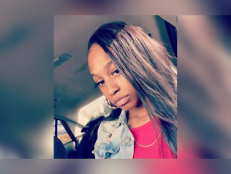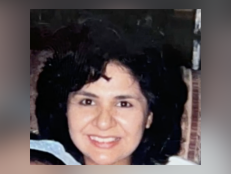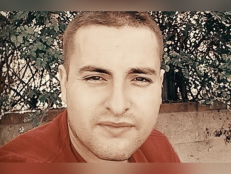Bodybuilder Sally McNeil Recounts Why She Killed Her Husband On Valentine’s Day 1995
Prosecutors claimed she was a “thug” but she insisted she feared for her life and shot Ray McNeil in self-defense.

Getty Images
A bodybuilder in California who killed her fellow bodybuilder husband on Valentine’s Day over 25 years ago claimed she suffered brutal beatings while he was experiencing “roid rage.” Prosecutors, however, contended she was a jealous “bully” who was the aggressor in the troubled and violent relationship.
On Feb. 14, 1995, Sally McNeil phoned 911 and reported she had just shot her husband, Ray McNeil, in the abdomen and head in self-defense after he beat her up.
At the police station, she explained to officers that she tried to escape their home during the beating but Ray refused to let her out. “So then I ran back to the bedroom, and I got my shotgun,” she said.
Officers told Sally during the interview that her husband was dead from his injuries. “I didn’t want it to be that way,” said Sally, who collapsed and sobbed. “I just wanted him to stop hitting me.”
Police arrested Sally and charged her with second-degree murder.
An autopsy showed Ray had steroids in his system at the time of his death. “Anabolic steroid use was the root of Ray's violence towards me. When Ray and I first got married in 1987, I had no idea that he was on steroids,” Sally told RXMuscle. “So I did not know that he was suffering from ‘roid rage' when he'd fly off the handle and beat the holy hell out of me.”
In the new documentary Killer Sally, the former pro-bodybuilder revealed that while growing up in Pennsylvania, she was constantly exposed to physical violence and came to see it as a normal part of everyday life. She went on to college, but said she had to give up on her dream and drop out with just one semester remaining due to a lack of money.
Sally decided to join the Marine Corps, where she discovered bodybuilding and got stronger and bigger “to be able to protect myself,” she said in the documentary.
On Feb. 14, 1987 — exactly eight years to the day she would kill her future husband — Sally met Ray, also a competitive bodybuilder, at a bodybuilding competition. Ray, like Sally, was also in the Marines and the two were stationed at Camp Pendleton outside San Diego.
“He looked like [Michelangelo’s] statue of David,” Sally recalled about how “beautiful” he was to her. “I thought, ‘What a man I have. I don’t want to lose him.’ When I love somebody, I give them my all. You get everything of me.”
But Ray, 23, quickly turned ugly after he and 27-year-old Sally dated two months and then got married, she recalled.
Just three days into their marriage, Sally said Ray split her lip after punching her in the face when he flew into an unprovoked jealous rage because she had dated two men before meeting him. She also claimed her two children from a previous relationship, Shantina and John, witnessed him break her nose. Ray, she said, often choked her during frequent beatings and sometimes forced her to have sex with him.
“My life with Ray was very turbulent. I left him about three times and he followed me to my new address. I was preparing to move back East where I was brought up and to the home I grew up in, but I didn't make it,” Sally told RXMuscle. “Looking back, I should have left him after the third day of our marriage… I was beaten up unmercifully.”
Sally claimed that while Ray was jealous of her, he was the one who wasn’t faithful.
“I could give you a long list of women Ray had affairs with — one of them even had the nerve to testify against me during my trial,” she claimed to RXMuscle, adding, “Yes, I should have left him, but my self-esteem was so beaten down by him that I thought he was the best I could get.”
Sally — who was known before Ray’s murder in the pro-bodybuilding circuit as “Killer McNeil” — said her husband was insecure and not supportive of her success in the sport.
“He said that I was inferior and he was the superior bodybuilder and everything should go towards him,” Sally recalled in the documentary. “From the start, I wasn’t good enough. I was never good enough. Ray felt as though he was the most important person in the family. He was trying to get me to give up my dream so I could support him.”
Sally’s children also recalled Ray’s temper, and John said his stepfather had a “very violent” relationship with him and would “abuse and beat” him often.
At Sally’s trial in 1996, the prosecutor characterized Sally as a “bully” and “thug” during opening statements. “And that’s hard to say when you’re talking about a woman, but Sally McNeil has managed to bridge the gap of gender,” the prosecutor said.
“I was not the bully or provoker in my marriage. If a guy is beating you up because he mistrusts you, wouldn't you be angry when you discover he is fooling around on you?” Sally asked in the interview with RXMuscle. “I wasn't jealous, I was deathly afraid of catching a disease such as HIV, Hep C or some awful STD... I didn't deserve that. I did nothing to deserve the beatings Ray handed out.”
Sally claimed to the publication that she once fought Ray after he attacked her, and he unleashed his fury on her as a result.
“One time when I hit Ray back after he brutally beat me it made the beating worse. He broke my rib and punctured my lung,” she said. “My military records have this injury reported. On that final night I felt as though I would not survive that choking or throughout the night. I panicked. Ray weighed 260 pounds, a hundred pounds more than me.”
Sally does have some troubling incidents in her past, acknowledges Nanette Burstein, the Oscar-nominated director of Killer Sally. In 1990, she was accused of attacking a woman who Ray was allegedly cheating on her with, and three years later, she was accused of kicking a bar bouncer in the face while in Pennsylvania.
“Sally was not the perfect victim, and victims are often not perfect,” Burstein told the Independent. “We want them to be perfect, and when they’re not, we get upset.”
Still, Burstein pointed out in an interview with The Guardian that the prosecutor’s arguments “that [Sally] couldn't have possibly been a victim because she was too strong” were “inane” and “absurd.”
On March 19, 1996, a jury disagreed and found Sally guilty of second-degree murder. The following month she was sentenced to 19 years to life in prison.
In June 2020, Sally was paroled and released from the Central California Women’s Facility in Chowchilla, California. She reportedly now lives near her son and daughter.
If you or someone you know is dealing with domestic violence or abuse from a romantic partner, you can visit the National Domestic Violence Hotline website, call 1.800.799.SAFE, or text START to 88788 for help. Advocates are available 24/7 to help callers talk through their situation and connect them with local resources. There is no charge to reach out to the National Domestic Violence Hotline.
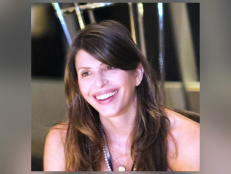
![Stacy Arthur [left] and James "Jim" Arthur [right] pictured smiling.](http://investigationdiscovery.sndimg.com/content/dam/images/investigationdiscovery/crimefeed/legacy/2023/01/the-playboy-murders-S1-E1-all-that-glitters.png.rend.hgtvcom.231.174.suffix/1673991794237.png)
